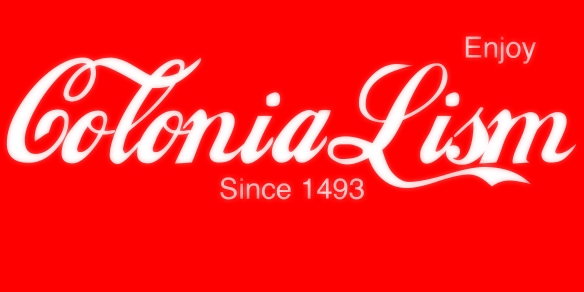
THE 1950's The 1950's was a time of accelerated political change. At the end of the Second World War there were only three independent countries in Africa:




THE WIND OF CHANGE (the end of colonialism in africa) 1
- Liberia, which had been founded by freed slaves and declared itself independent in 1847.
- Ethiopia, which was an ancient territory, had never been colonized by a European power despite the attempts of the Italians in the 1880's and 1930's
- and Egypt, which had achieved independence in 1922.In 1951
Libya was granted independence from Hitler's former ally, war-weary Italy. Egypt renounced its historic control over Sudan. Britain had little choice then but to grant full independence to Sudan in 1956. In the same year, Morocco and Tunisia became independent of France.

Leaders of Indian Nationalism, Ghandi and Nehru, 1948.
INFLUENCES: INDIA: The country which made the biggest impact on African nationalists was India which was led to independence by Mahatma Gandhi in 1947. His confident doctrine of nonviolence, and his track record battling racial prejudice in South Africa made him a hugely influential model among African nationalists. He was assassinated in January 1948.

1945 Pan-African Congress , Chorlton Town Hall in Manchester England.
PAN-AFRICANS: Already in 1945 at the 5th Pan African Congress in Manchester, UK, there were a number of delegates who were later to bring their countries to independence. These included Hastings Banda (later President of Malawi), Kwame Nkrumah (later President of Ghana), Obafemi Awolowo (later Premier of the South West Region Nigeria) and Jomo Kenyatta (later President of Kenya).
But nobody could have predicted that within fifteen years of the meeting in Manchester, the vast majority of African countries would be independent. In the early 1950's, Julius Nyerere estimated that complete independence would not happen until the 1980's.

AFRICA & USA & SOVIET UNION: On the world stage America wanted an end to colonialism for reasons of free trade (easy access to African markets which had previously bought from Europe) and political influence. The Soviet Union wanted an end to colonialism and capitalism for reasons of ideology and to increase its sphere of influence.
While African nationalists took a pragmatic view of soviet style communism, the British government was concerned about the Soviet influence on Africa. And where African nationalists met with resistance or persecution from Europe, many welcomed the support and interest of the Soviet Union.

AFRICA & USA & SOVIET UNION: "…generally speaking, it is the detribalised native who responds best to communism, as he misses the narrow confines of tribal life and a leader on whom to bestow loyalty. This gives the Rand, with its inflow of immigrant labour, its special importance in the diffusion of communism in Africa…
Communism has made the least progress where the influence of Islam is strongest. Though in the past year the communist picture has been one of retrogression on some fronts, there are signs of increased interest in anti-colonialism from Moscow." --British Foreign and Colonial Office, Notes on the Aims, Strategy and Procedure of the Communists in Africa, 1 May 1950.
Communism has made the least progress where the influence of Islam is strongest. Though in the past year the communist picture has been one of retrogression on some fronts, there are signs of increased interest in anti-colonialism from Moscow." --British Foreign and Colonial Office, Notes on the Aims, Strategy and Procedure of the Communists in Africa, 1 May 1950.
(source: BBC)
THE WIND OF CHANGE (the end of colonialism in africa) 1

Should criminals be in charge of correcting the wrong they inflicted?
ReplyDeletePuerto Ricans vote in elections every 4 years at an 80% level of participation. Puerto Rico has been a colony of the United States (US) government for the past 116 years. If the US government has the final say in what happens in Puerto Rico, what is the purpose of these elections? The purpose is to fool the world that Puerto Rico is a democracy.
The United Nations (UN) declared colonialism a crime against humanity in 1960. The UN has asked the US government 33 times to decolonize Puerto Rico immediately. The US government has refused. It says that Puerto Rico’s political relationship with the United States is none of the UN’s business. The US says that it is a domestic affair.
To appear that the US government wants to decolonize Puerto Rico, it promotes the use of plebiscites to determine what Puerto Ricans want. Doesn’t that sounds innocent and democratic? So what’s the problem?
To begin with, the international community already rendered its verdict and determined that colonialism is illegal. So to have a political status option in a plebiscite that favors maintaining Puerto Rico a colony of the United States is not permitted. To have a political status option of Puerto Rico becoming a state of the United States is also not permitted under international law. The problem goes back to the beginning of this article. In order to have free elections, the country must be free. So before these elections and plebiscite could be valid, Puerto Rico would have to first be an independent nation.
What people must realize is that Puerto Rico is a colony of the US because the US government wants it that way. That is why it has used terrorism to keep it that way. That is why it refuses to release the Puerto Rican political prisoner of 33 years Oscar López Rivera. That is also why it is ridiculous to believe that decolonization is a US internal matter in which the UN has no jurisdiction over. If we allow the US government to decolonize Puerto Rico, she will remain a colony of the United States forever!
José M López Sierra
www.TodosUnidosDescolonizarPR.blogspot.com